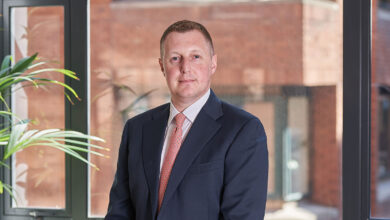Illicit finance: The right time for new thinking

Illicit finance is a major threat to the security and prosperity of all nations, including Ireland. It not only enables criminals to profit from the most heinous crimes, but also finances terrorist atrocities, writes Deirdre Carwood, partner in charge of Forensic Ireland and Global Head of Investigations and Crisis Support at Deloitte.
How to combat the growing issue in Ireland
Criminal activities around the world generate huge profits through activities such as people trafficking, modern slavery, the illicit sale of drugs and firearms, environmental crime and bribery and corruption. It causes an immense financial and human cost to society, business, and government; a cost that we cannot, and should not, bear.
Public-private collaboration
Historically, public, and private sectors have largely tackled the threat independently. Although there have been some good examples of partnership working, strategic system-wide collaboration has been absent. The sheer size and complexity of the regime seems to act as an inhibitor to change. However, the time has now come for this to change. Only by working collectively can we effectively fight economic crime.
The challenge is not a simple one. Organised crime groups have highly sophisticated methods to conceal their profits, which enable the movement of illicit funds so that they are beyond the view of law enforcement officials and can defeat controls put in place by the regulated sector. Money also moves quickly; it passes between institutions and across borders in seconds, while for investigators, following those trails can take months.
Technology advancement: solution or challenge?
To disrupt and disable the criminals, law enforcement and the private sector must find equally sophisticated ways to make these hidden money trails more transparent and they must be able to bring investigators with the right skills to the table.
Public sector officials have access to unique tools, data, and powers, but there can be challenges around sourcing the latest technical skill sets to investigate these sophisticated criminals and the techniques they employ. Greater collaboration with the private sector, which often has skills and capacity to help investigate financial crime more effectively, could hold the key.
As an example, we can look to the approach taken by the US Department of Justice (DoJ). The DoJ has worked with the private sector for the best part of a decade, bringing in forensic accountants, open-source intelligence analysts and more, which has enabled them to make a dramatic step-change in the seizure of criminal assets.
Cross-sector ecosystem
Economic crime and illicit finance do not stop at financial services. A huge range of other sectors need to play a strong, active role within the ecosystem. This can be both socially responsible and be good for business: social media needs to tackle the explosion in phishing and romance frauds, telcos are faced with soaring incidents of payments fraud, pharmas are struggling with transactions laundering and other sectors such as real estate and NGOs must be alert to the risks of source of funds and money laundering.
Additionally, there are many arms of government, such as the Revenue, Companies Registration Office, and Land Registry, where more coordination and collaboration could help best defend the system.
The challenge is significant requiring cultural and regulatory reform, but from our experience of working with organisations across the ecosystem, we know that everyone involved wants the same outcome: to prevent crime, protect citizens and customers, and disrupt the criminals. The task, for leaders in both government and industry, is to harness this shared ambition and go on the transformation journey together.
T: +353 214 907 051
E: dcarwood@deloitte.ie
W: www.deloitte.ie






